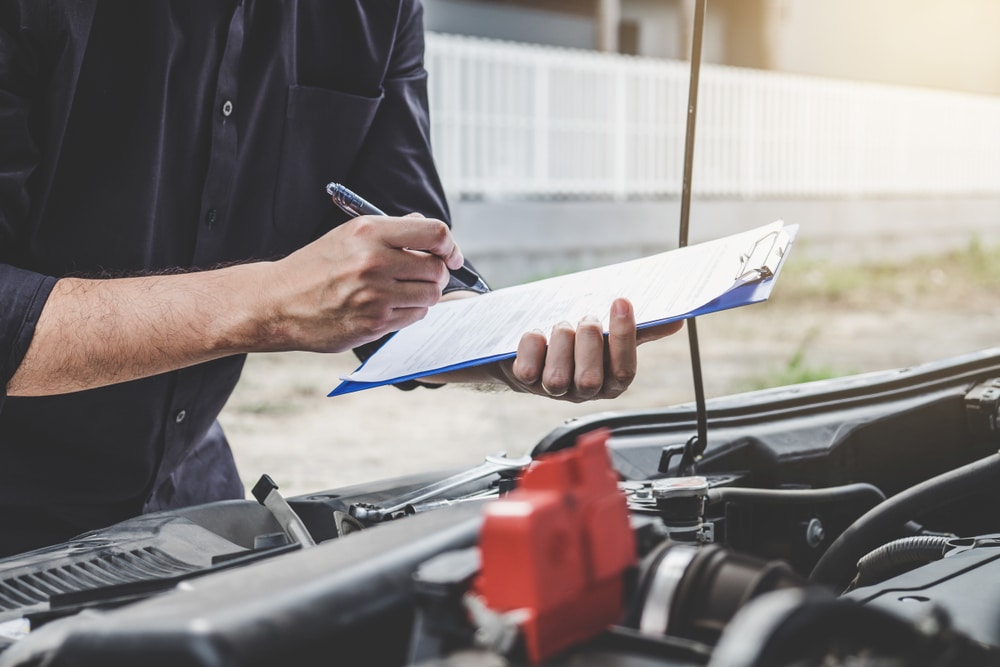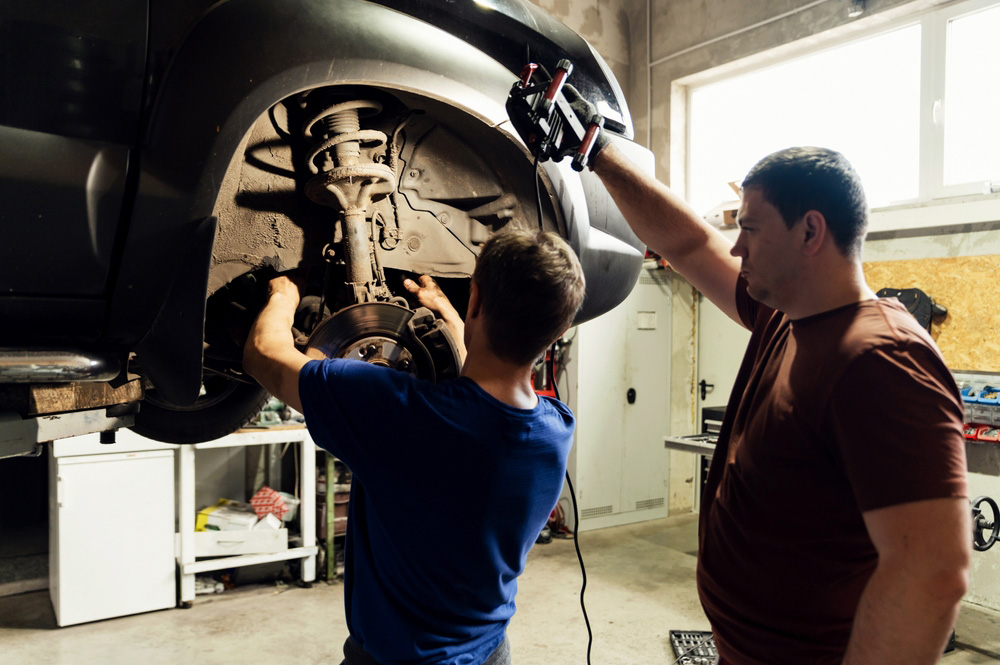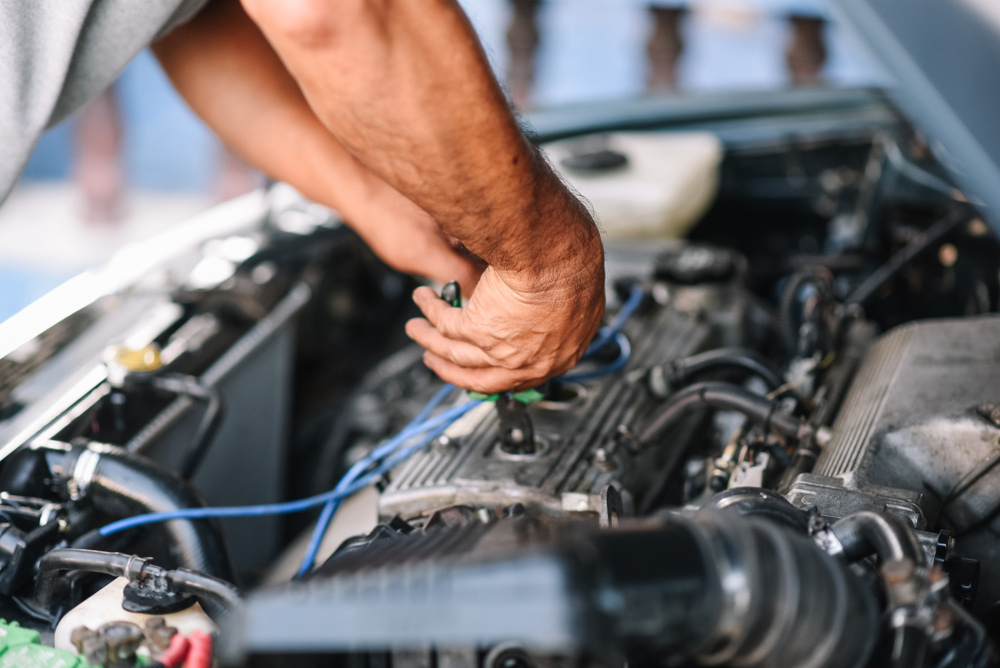Whether you’re facing unexpected repairs or simply seeking the best local car mechanic for routine…
How to Prepare Your Vehicle for a Long Road Trip
Long road trips offer an excellent opportunity to explore new destinations and enjoy time on the open road. However, before setting off on your journey, it is essential to ensure that your vehicle is ready for the demands of long-distance travel. Preparing your car not only enhances your safety but also helps prevent unexpected breakdowns and costly repairs. In this guide, we will walk you through the key steps to ensure your vehicle is road trip-ready, so you can travel with confidence.
Check Tyre Condition and Pressure
Your vehicle’s tyres are the only contact points between the car and the road, so it’s critical that they are in good condition for a long trip. Start by inspecting the tread depth of each tyre. Worn tyres can make your vehicle more difficult to control, especially in wet or slippery conditions.
In addition to tread depth, check for any visible signs of damage such as cuts, bulges or uneven wear. These could indicate underlying issues that need attention before your trip. It’s also important to ensure that your tyres are properly inflated. Low tyre pressure can reduce fuel efficiency and cause excessive wear, while overinflated tyres can lead to a bumpy ride and decreased traction. Refer to your vehicle’s manual for the recommended tyre pressure and check it with a reliable gauge. Don’t forget to check the spare tyre as well – a flat spare is of no use if you encounter a problem on the road.
Inspect Your Brakes
Your brakes are one of the most crucial safety components of your vehicle, especially when driving long distances. Before heading off, have your brakes inspected by a qualified car mechanic. They will check the condition of the brake pads, discs and fluid levels. If your brakes are making unusual noises such as squealing or grinding, or if you notice the vehicle taking longer to stop than usual, it’s essential to address these issues before your trip.
Well-functioning brakes are particularly important if your road trip involves driving through mountainous or hilly areas, where you may need to rely on them more frequently. Make sure that your vehicle’s braking system is in top condition to handle long stretches of driving and any sudden stops that may be required.
Top Up Fluids and Check for Leaks
Fluids play a vital role in keeping your vehicle’s engine and other systems running smoothly. Before embarking on your road trip, take the time to top up all essential fluids and inspect for any leaks. Key fluids to check include:
- Engine Oil: Ensure the oil is at the correct level and consider getting an oil change if your vehicle is due for one. Fresh oil helps keep the engine lubricated and running efficiently.
- Coolant: Check the coolant level to prevent the engine from overheating, especially on hot summer days. Make sure the radiator and coolant hoses are free from leaks or damage.
- Brake Fluid: Ensure the brake fluid is at the proper level to maintain optimal braking performance.
- Transmission Fluid: If you haven’t had your transmission fluid checked recently, now is the time to do so. This fluid helps keep your transmission running smoothly.
- Windscreen Washer Fluid: Keep the windscreen washer reservoir full so you can maintain clear visibility in case of bugs, dust or rain on the road.
Leaking fluids can be a sign of underlying issues, so if you notice any puddles under your vehicle, it’s important to have it inspected by a car mechanic before you set off.
Test Your Battery
A dead battery can bring your road trip to a halt before it even begins, so it’s worth ensuring that your car’s battery is in good working order. If your battery is more than three years old, consider having it tested by a car mechanic. Even if it’s not that old, checking for signs of wear such as corrosion around the terminals can help prevent issues.
If your vehicle has been slow to start recently, or if you’ve noticed dimming headlights, it could be a sign that your battery is losing its charge. Replacing a weak battery before a long trip can save you from being stranded and having to rely on a jump-start in an unfamiliar location.
Test Lights and Indicators
Visibility is key to safety on long road trips, especially if you’ll be driving at night or in adverse weather conditions. Take a few minutes to walk around your vehicle and test all of the lights, including headlights, tail lights, brake lights and indicators. Have a car mechanic replace any bulbs that have burnt out and make sure that the lights are clean and free of dirt or grime.
In addition to external lights, check that your interior dashboard lights and hazard lights are functioning correctly. If you’ll be towing a trailer or caravan, be sure to test the trailer’s lights and ensure that they are synced with your vehicle.
Plan Regular Breaks
While preparing your vehicle is crucial, don’t forget to plan for yourself as well. Long road trips can be tiring, and fatigue can be dangerous. Schedule regular breaks every two hours or so to stretch your legs, stay alert and give your body a chance to recharge.
If you’re travelling with other drivers, take turns behind the wheel to avoid fatigue. Staying well-rested and hydrated will ensure that you can safely enjoy the journey and arrive at your destination without incident.
A successful road trip starts with thorough preparation, and ensuring your vehicle is in top shape is key to a smooth and enjoyable journey. From checking your tyres and brakes to topping up fluids and testing your battery, taking the time to prepare your car will help you avoid breakdowns and keep you safe on the road. By following these steps and packing an emergency kit, you can set off on your adventure with confidence, knowing that both you and your vehicle are ready for whatever the trip may bring. For a full vehicle inspection, rely on our car mechanics at Procheck Automotive!



